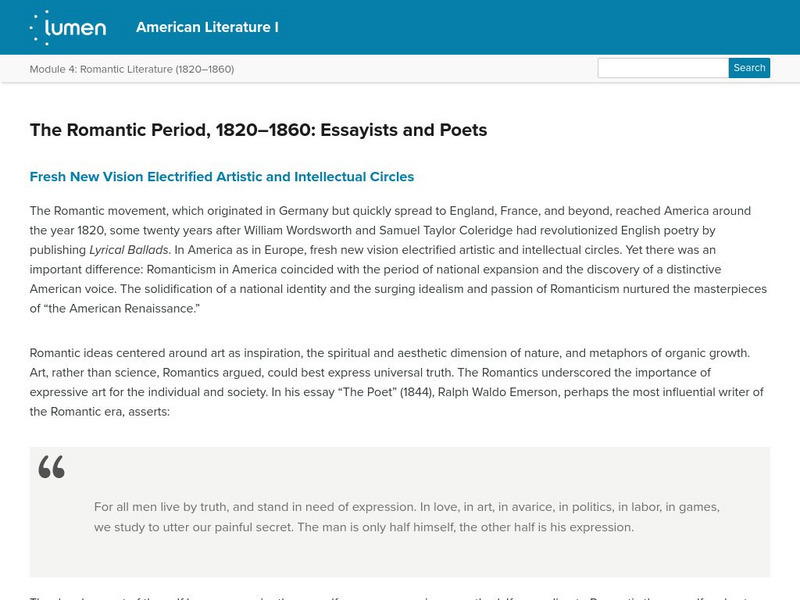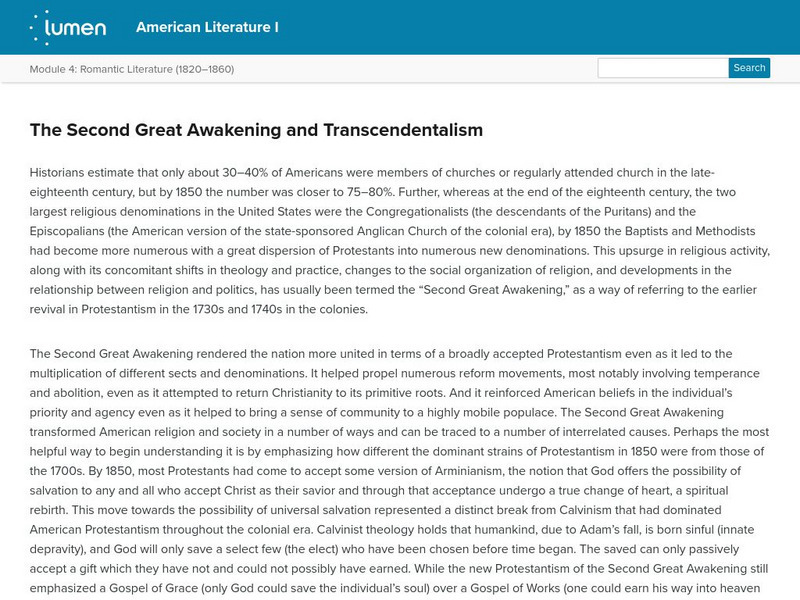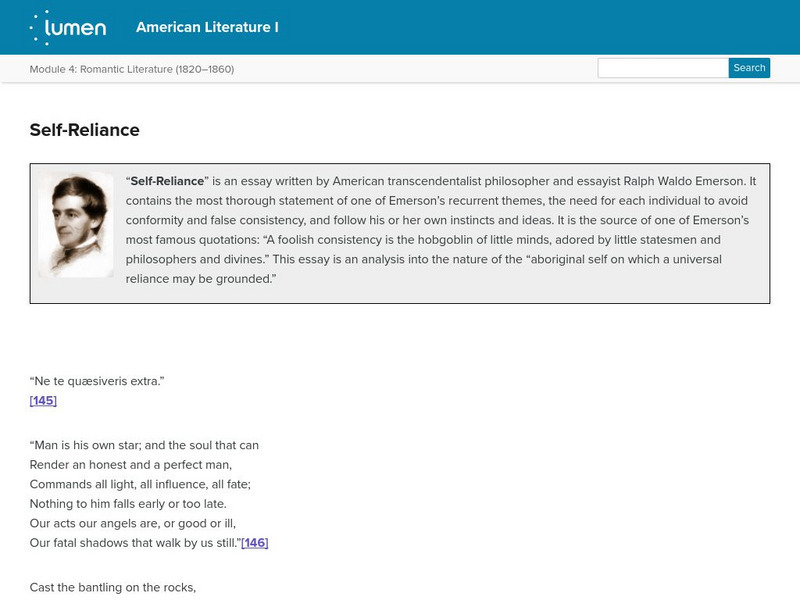Curated OER
Louisa May Alcott: The Candle and the Mirror
Students discuss the life of Louisa May Alcott and create an outline of a biography of her life and times. In this Louisa May Alcott activity, students explore the Transcendentalist involvement in the abolitionist movement,...
OpenStax
Open Stax: An Awakening of Religion and Individualism
This section of a chapter on "Antebellum Idealism and Reform Impulses" explains the connection between Evangelical Protestantism and the Second Great Awakening and describes the message of the transcendentalists.
Varsity Tutors
Varsity Tutors: Web English Teacher: Henry David Thoreau
Learn more about the author Henry David Thoreau when you explore this resource. This site provides links to lesson plans and activities for some of his works.
Lumen Learning
Lumen: The Romantic Period, 1820 1860: Essayists and Poets
This lesson focuses on the Romantic Period's essayists and poets such as Ralph Waldo Emerson, Henry David Thoreau, Henry Wadsworth Longfellow, Emily Dickinson, Walt Whitman, the Brahmin Poets, and more.
Lumen Learning
Lumen: The Second Great Awakening and Transcendentalism
This article focuses on the Second Great Awakening and Transcendentalism in America. It looks at the relationship between religion and politics.
Lumen Learning
Lumen: Romanticism: "The American Scholar" by Ralph Waldo Emerson
"The American Scholar" is a speech given by Ralph Waldo Emerson on August 31, 1837, to the Phi Beta Kappa Society at Cambridge, Massachusetts. He was invited to speak in recognition of his groundbreaking work "Nature" in which he...
Lumen Learning
Lumen: Romanticism: "Self Reliance" by Ralph Waldo Emerson
"Self-Reliance" is an essay written by American transcendentalist philosopher and essayist Ralph Waldo Emerson. It contains the most thorough statement of one of Emerson's recurrent themes, the need for each individual to avoid...








